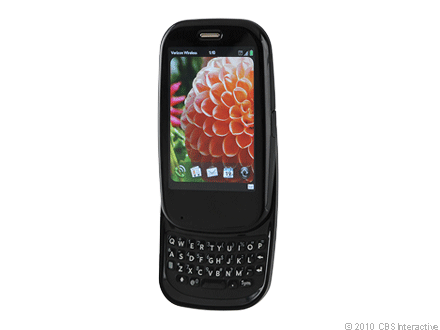Palm for sale: What's the best case scenario?

Palm is putting itself up for sale and reportedly has recruited Goldman Sachs and long-time Silicon Valley investment banker Frank Quattrone to get the deal done. Palm has gone from darling to selling itself in just a few months. Here's a look at the best (and worst) case scenarios for Palm's future, developers and customers.

Related: If HTC buys Palm, what should they do with them?
- Palm: Pondering the future and the vicious cycle ahead
- Palm earnings: 'Underperformance' is disappointing; So is the outlook
- Palm is putting itself up for sale with help from Goldman Sachs
- Is Palm going up for sale soon? Wouldn't an HTC webOS device be killer?
- Palm email alerts
Palm makes an intriguing buyout candidate. The company isn't so hot at hardware---not to mention keeping pace with new models---but has intellectual property and the WebOS. The big question is price.
When pondering a potential Palm buyer there are three main constituents to consider. There's Palm customers and developers. And then there's the company itself. What's best for Palm's future as a smartphone player. Let's go through the scenarios.
- HTC buys Palm. HTC is the clearly the favored buyer among the tech pundits. HTC is in a high-profile patent suit with Apple. HTC is a key ally of Google. And HTC can pump out cool handsets. Buying Palm would give HTC intellectual property and an operating system that could be a nice hedge if the handset maker were to get crushed by Apple. The developer ecosystem would probably play along with HTC. There are a few wild cards. Gizmodo's Jesus Diaz makes a case that HTC would buy Palm for patents and then aim them at Apple. It's a bit unclear whether the timing would play out for that scenario to play out. The other item that makes an HTC purchase a bit iffy: Financial heft. Sure, HTC is a darling, but the company only had $4.5 billion in revenue for 2009. It's a small player---and that's why Apple is picking on it in a patent suit. Can HTC realistically integrate Palm while exchanging jabs with Apple? Palm's market cap was $870 million before the market opened on Monday. Palm would be tough to digest for HTC.
- Research in Motion buys Palm. RIM needs an operating system. Palm has one. RIM is courting developers and doing a decent job of working with them. Palm would bring more into the fold. RIM could buy Palm without indigestion. You take Palm's operating system---perhaps use them for consumer devices---and RIM can plug them into more durable hardware. RIM could almost use two operating systems---the WebOS for consumery phones and its current system for the enterprise. RIM also isn't shy about acquisitions and has been filing out its mobile Web arsenal. The big wild-card here is whether RIM will want to deal with two operating systems.
- Dell buys Palm. A Dell acquisition of Palm would be clean for sure. Dell is just getting going in the smartphone market and Palm would bring expertise, intellectual property and an operating system to the fold. Dell could afford the deal and would have something to differentiate it in the mobile field. There's also a decent chance that Dell could keep the developer ecosystem going for the WebOS.
- Lenovo buys Palm. Lenovo is another player that fits in the Dell mode. Lenovo could bring some manufacturing rigor and use Palm's WebOS to be a mobile player---most likely in China. The wild card is whether Lenovo could keep developers interested in the Palm platform.
- Huawei or ZTE buys Palm. Bloomberg mentioned that China's two largest handset makers may buy Palm. The probability for such a deal is high. Call this one the black hole scenario. On paper, Huawei or ZTE could take Palm's WebOS and then line it up with some real hardware. The issue: Huawei and ZTE would have trouble keeping developers interested. The WebOS would die on the vine---but could be a success in China.